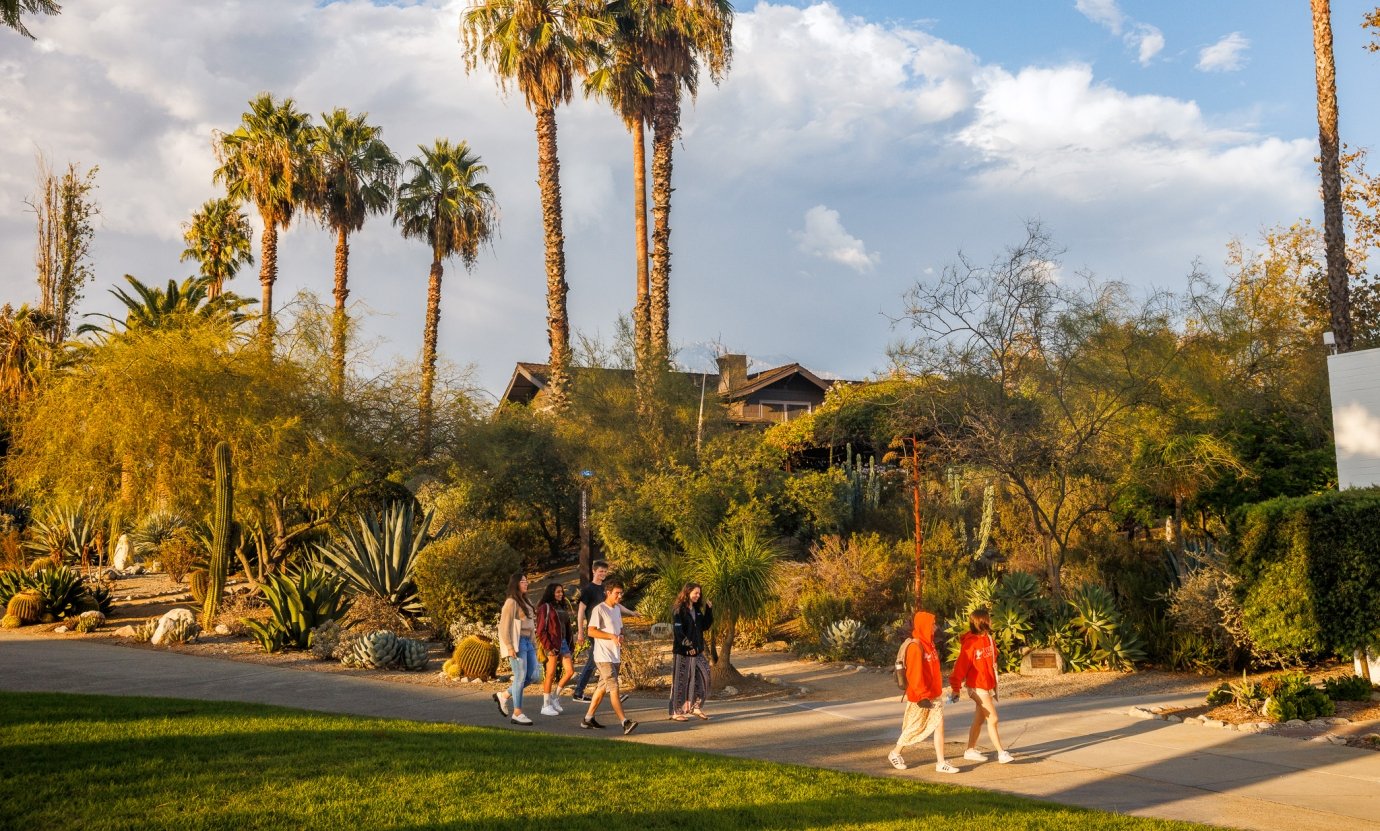Office of Communications and Marketing
Experts in strategic communications, our team shares the stories of Pitzer through digital and print content that elevates and supports the College’s mission, goals, and community

We Are Pitzer’s Storytellers
By partnering with the Pitzer community to share stories of student, alumni, and faculty achievements, our purpose is to show the world the people, programs, and impact that make Pitzer College unique and exceptional.
The Communications and Marketing team has expertise in writing/editing news, web content, promotion/publicity, and internal communications; design and multimedia (photo/video); web strategy and management; and traditional and social media outreach.
We publish The Participant magazine and scores of print and digital publications, capture imagery that brings Pitzer to life in those channels and on the web, manage the strategy and content for pitzer.edu, and provide monthly College news and updates via the Pitzer Today e-newsletter.
We manage the @PitzerCollege social media presence for:
We are experts in news media strategy and outreach. We also champion and steward Pitzer’s brand identity, messaging, and style guides.
We love to hear from the Pitzer campus community, alumni, families, and the public. Contact us!
Common Ways to Interact
• Submit a news tip or story idea
• Inquire about a creative project
• Obtain web guidance
• Ask for media/reporter assistance
• Find answers to general questions
“The Participant” Magazine

The Magazine of Pitzer College
The Power of the Liberal Arts: The fall 2025 issue looks at the power of the liberal arts in the lives of John Landgraf ’84 (FX Networks chair); Maia Stern ’07 (producer of NPR’s Tiny Desk Concert series); and much more.
View the Latest IssueCommunications News
View Pitzer News
Featured
The Power and Unexpected Payoffs of Pitzer’s Liberal Arts Experience
FX’s John Landgraf ’84, Faculty Voices, and Others Take Center Stage in Pitzer’s New Issue of The Participant Magazine
Contact Us
Office of Communications and Marketing